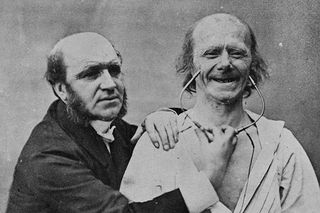Trust
Why Ted Cruz’s Facial Expression Makes Me Uneasy
What messages are the senator’s atypical facial gestures sending?
Posted January 1, 2016 Reviewed by Jessica Schrader

It’s hard to look at Ted Cruz’s face. He’s said to be a brilliant orator with a sharp legal mind. But his expression unsettles me. I understand that my reaction is visceral and automatic, but as a neurologist, it is my business to notice things out of the ordinary and probe them. The senator’s atypical expressions leave me uneasy.
It's remarkable how many colleagues and former associates say that they "loathe" Cruz. A Bush alumnus told The New York Times' Frank Bruni, “Why do people take such an instant dislike to Ted Cruz? It just saves time.” Former Senate Majority leader Bob Dole says, "Nobody likes him," while Rep. Peter King sees "malice" behind his visage. According to The Washington Post, screenwriter Craig Mazin, Cruz's former Princeton roommate, calls him a "huge asshole," and "creepy." He's Tweeted, "Getting emails blaming me for not smothering Ted Cruz in his sleep in 1988." The distaste for Cruz extends well beyond the US: Germans say Backpfeifengesicht, meaning a face in need of a good punch.
Humans learn to read faces from the day they are born. Infants readily respond to smiles. They imitate others’ facial expressions and gestures. During the first months of life, brain activity readings trace the development of their body maps. These brain maps allow an infant to recognized similarities between self and other—the foundation on which all social cognition rests, especially trust.
Our stone-age ancestors learned to read faces and rapidly tell friend from foe. While we live in a far different environment, we still possess the same stone-age brain as our distant relatives. Like them, we judge instantly. Automatically and more quickly than conscious reflection could ever manage, we weigh whether we like a new face or distrust the person behind it. Our social circuits, which are almost entirely emotional, tell us whether to trust a person or not. Given a million years of practice, our brains are good at this.
I didn't care about Senator Cruz one way or the other until I watched the first Republican debate. I noticed that his countenance doesn’t move the way I typically expect faces to move. (Neurologists scrutinize thousands of faces as part of the standard exam, so doing it becomes automatic.) Human faces can’t help but broadcast what we feel, what we may be thinking, and even what we may intend. Many animals likewise broadcast what’s happening in their heads. Charles Darwin illustrated this at length in The Expression of the Emotions in Man and Animals.

Reading faces is such a fundamental skill that 54 facial muscles orchestrate its endless nuances. Others read these gestures like a book just as we read them. Only a minority of these many facial muscles are under voluntary control, which is one reason it is hard to maintain a poker face or counterfeit a smile.
I have rarely, if ever, seen a conventional smile from Senator Cruz. In a natural smile the corners of the mouth go up; these muscles we can control voluntarily as well. But muscles circling the eyes are strictly under involuntary control: they make the eyes narrow, forming crow’s feet at the outside corners. Even the Mona Lisa’s smile shows this. The eyes give away one’s game and help us tell forged from genuine smiles. Grandma may have told you to put on a happy face, but you can’t if it isn’t heartfelt.
No matter what the emotional coloring of Senator Cruz’s outward rhetoric is, his mouth typically tightens into the same straight line. If it deviates from this, then the corners of his mouth bend down, not upwards. The outside of his eyebrows bend down, too, when he emotes, something so atypical that it disturbs me. Typically a person’s eyebrows arch up, as does the corrugator muscle that furrow the forehead. What is such a downturned face signaling?
Downturned expressions usually signal disagreeableness or disgust. But I honestly don’t know because such an expression is rare in the context of public presentations meant to win people over. Cruz may well be unaware that the message of his body language is incongruent with his words.
And then there is that open “O” of the senator’s mouth that photos capture over and over. I don’t know what to make of it. But he makes it when he overtly emotes—he shows us as well as tells us that he is determined, irritated, or above it all—whereas speakers who are angry, indignant, or rhetorically displeased push their mouth forward in a pout. He doesn’t. Google “Ted Cruz smiling,” and judge for yourself. For the record, I am not a Democrat. I’m at a loss to verbalize what unsettles me so when I watch the freshman senator. But it leaves me cold.
Follow me @Cytowic, or explore my writings at Cytowic.net, LinkedIn, or on Facebook.




